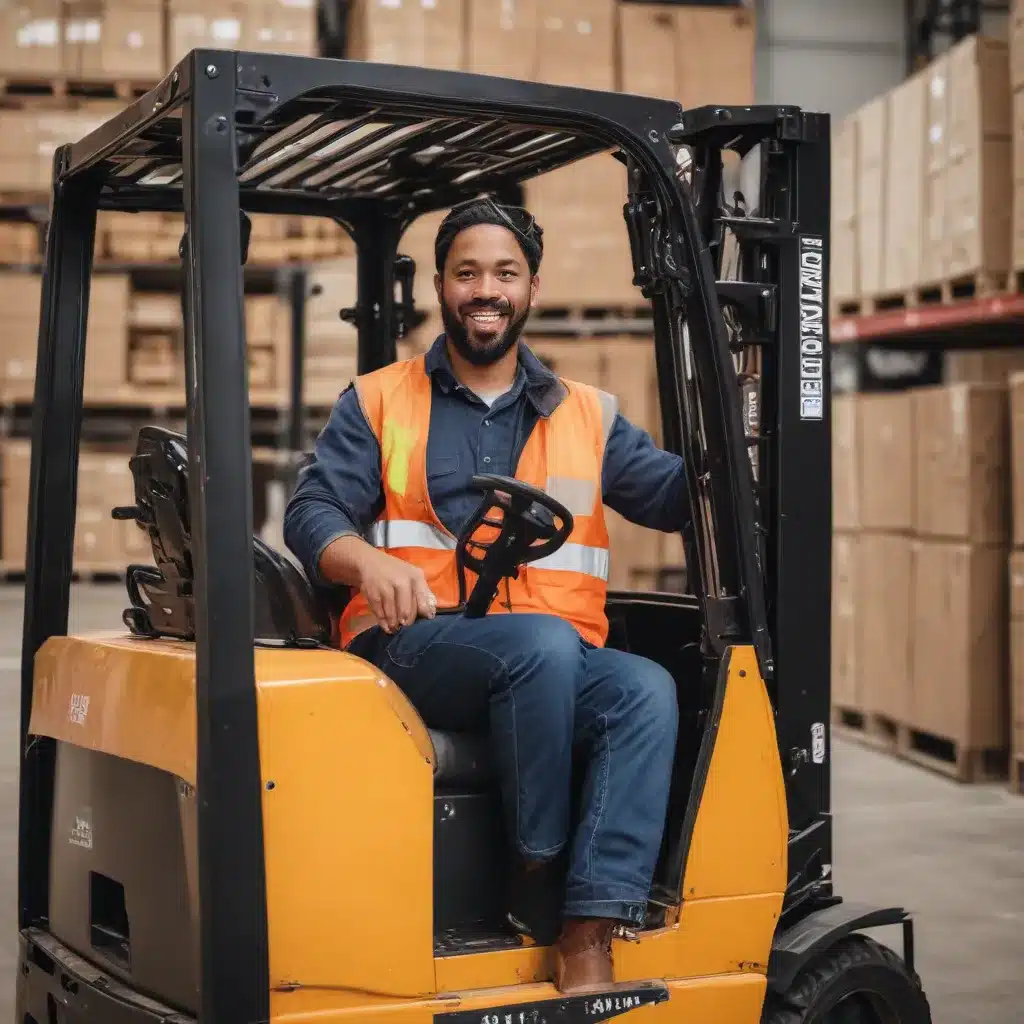
Embracing Diversity: The Key to a Thriving Forklift Workforce
In the dynamic world of forklift operations, where efficiency and safety are paramount, the importance of a diverse and inclusive workforce cannot be overstated. As an industry expert, I’ve witnessed firsthand the transformative impact that embracing diversity can have on organizations, from improved productivity to enhanced employee well-being. In this comprehensive article, we’ll explore the critical role of Diversity, Equity, and Inclusion (DEI) initiatives in creating a forklift work environment where every individual can thrive.
Cultivating a Sense of Belonging
At the heart of effective DEI strategies lies the ability to foster a profound sense of belonging among forklift operators. When employees feel valued, respected, and included, they are more likely to be engaged, motivated, and committed to the success of the organization. This, in turn, leads to higher levels of job satisfaction, increased productivity, and a reduced risk of turnover.
To cultivate this sense of belonging, forklift operations must prioritize open communication, active listening, and the celebration of diverse perspectives. By creating platforms for employees to share their experiences, ideas, and concerns, organizations can build a culture of trust and empathy, where everyone feels empowered to contribute and grow.
Promoting Psychological Safety
Psychological safety is another critical element of a successful DEI initiative in the forklift industry. Employees must feel comfortable voicing their opinions, taking risks, and expressing their authentic selves without fear of negative consequences. This sense of psychological safety is instrumental in driving innovation, problem-solving, and continuous improvement.
Forklift operations can promote psychological safety by implementing inclusive leadership practices, such as empathetic communication, collaborative decision-making, and the recognition of individual contributions. By fostering an environment where mistakes are viewed as opportunities for learning and growth, organizations can encourage a culture of transparency and continuous improvement.
Addressing Inequities and Biases
Diversity, equity, and inclusion efforts also require a proactive approach to addressing systemic inequities and biases that may exist within the forklift industry. This includes examining hiring and promotion practices, ensuring fair and equitable compensation, and providing targeted professional development opportunities for underrepresented groups.
Forklift operations should also invest in diversity training programs that help employees recognize and mitigate unconscious biases, promote cultural competency, and develop a deeper understanding of the value of a diverse workforce. By addressing these challenges head-on, organizations can create a level playing field where all employees have equal opportunities to succeed.
Inclusive Policies and Practices
Effective DEI strategies in the forklift industry must be underpinned by inclusive policies and practices that support the diverse needs of the workforce. This may include flexible work arrangements, accessible workspaces, and the provision of language translation services or accommodations for employees with disabilities.
Furthermore, organizations should establish clear anti-discrimination and anti-harassment policies, and ensure that they are consistently implemented and enforced. By creating a work environment where everyone feels safe, respected, and empowered, forklift operations can unlock the full potential of their diverse workforce.
The Business Case for Diversity and Inclusion
Beyond the moral imperative, there is a strong business case for embracing diversity and inclusion in the forklift industry. Studies have consistently shown that diverse and inclusive organizations outperform their less diverse counterparts, enjoying higher levels of innovation, improved problem-solving, and enhanced financial performance.
By tapping into the diverse perspectives and experiences of their workforce, forklift operations can develop innovative solutions to complex challenges, better anticipate and respond to market changes, and deliver exceptional customer service. Furthermore, a reputation for being an inclusive and equitable employer can help organizations attract and retain top talent, further strengthening their competitive edge.
Driving Meaningful Change: Best Practices for Forklift Operations
Implementing a successful DEI strategy in the forklift industry requires a comprehensive and holistic approach. Here are some best practices to consider:
-
Leadership Commitment and Accountability: Securing buy-in and active engagement from organizational leaders is crucial. Leaders should champion DEI initiatives, set clear diversity goals, and hold themselves and others accountable for creating an inclusive work environment.
-
Diverse Recruitment and Retention Practices: Forklift operations must actively seek out and attract talent from underrepresented groups. This may involve revising job descriptions, expanding recruitment efforts, and implementing inclusive hiring practices, such as blind resume screening and diverse interview panels. Equally important is the retention of diverse talent through targeted professional development and career advancement opportunities.
-
Inclusive Workplace Policies and Initiatives: Forklift organizations should establish clear policies and programs that promote equity, fairness, and a sense of belonging. This may include anti-discrimination and harassment policies, flexible work arrangements, employee resource groups, and mentorship programs.
-
Continuous Learning and Improvement: Fostering a culture of continuous learning and improvement is essential for the long-term success of DEI initiatives. Forklift operations should regularly review their policies, practices, and outcomes, and make adjustments as needed to ensure they are effectively addressing the evolving needs of their diverse workforce.
Conclusion: Embracing the Forklift Workforce of the Future
In the ever-evolving landscape of the forklift industry, embracing diversity, equity, and inclusion is no longer a nice-to-have, but a strategic imperative. By creating work environments where every individual feels valued, respected, and empowered to reach their full potential, forklift operations can unlock unprecedented levels of innovation, productivity, and organizational resilience.
As an industry expert, I encourage forklift organizations to take bold steps towards implementing comprehensive DEI strategies that foster a sense of belonging, promote psychological safety, and address systemic inequities. By doing so, they will not only cultivate a thriving workforce but also position themselves as leaders in the forklift industry of the future.
Together, let us build a forklift industry that celebrates diversity, champions equity, and empowers every individual to contribute to the success and growth of the organization. The rewards of this endeavor will be felt not only by the employees but also by the customers, communities, and the industry as a whole.
Visit Forklift Reviews to stay up-to-date on the latest industry trends, safety guidelines, and forklift innovations that are shaping the future of the forklift workforce.

